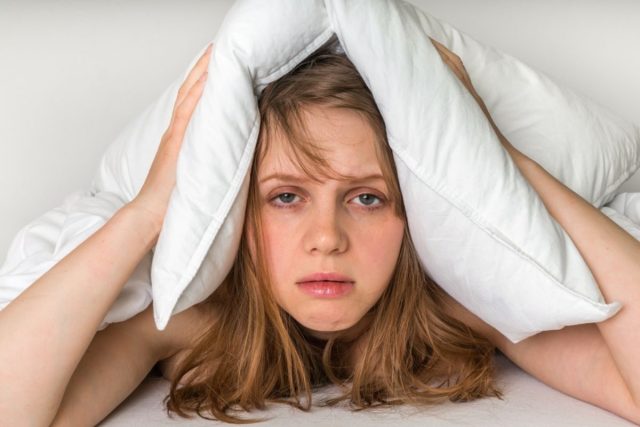Share this @internewscast.com
There are many reasons why you might find yourself staying up late—not the least of which is that it’s not always easy to fall asleep. But if you are a perpetual night owl who often goes to sleep (and wakes up) late, you may want to consider making some adjustments to your lifestyle. That’s because a new study published in the Annals of Internal Medicine journal has found that staying up late may increase your risk of developing type 2 diabetes, particularly if you are a middle-aged woman.
Researchers collected data from a sample of 63,676 female nurses between the ages of 45 and 62. When the study began in 2009, none of the participants had a history of cancer, cardiovascular disease, or diabetes.
The nurses were followed until 2017, during which time they answered questionnaires and tracked certain behaviors, such as alcohol consumption, quality of diet, physical activity, smoking, body mass index (BMI), and sleep habits. Ultimately, there were 1,925 documented diabetes cases among the participants.
The results showed that those who tended to be night owls—or have a “definite evening” chronotype—were 54% more likely to lead an unhealthy lifestyle than those who slept earlier or had a “definite morning” chronotype. (Chronotype is just a fancy word to describe your natural sleep tendencies—i.e., whether you’re more of a night owl or an early bird, per SleepFoundation.org.) The researchers also concluded that the night owls faced a higher risk of diabetes. Although other lifestyle habits did affect the results, they didn’t have enough impact to alter the ultimate findings. “Accounting for BMI, physical activity, diet, and other modifiable lifestyle factors attenuated much but not all of the increased diabetes risk,” the study abstract notes.

Although the study had some distinct limitations—namely, that all participants were female nurses of middle age and answers were self-reported—it does seem to suggest a clear correlation between type 2 diabetes and sleep habits. And these findings are consistent with what we already know about the relationship between sleep and health.
Read Related Also: 7 Breakfast Chains That Use the Highest Quality Ingredients
“Overall, sleep helps maintain blood sugar levels and promotes a healthy weight, so if you’re not getting the sleep your body needs, it will have a hard time functioning even if you’re doing everything else right (i.e.: eating healthy, exercise, etc.),” Courtney D’Angelo, MS, RD, author at GoWellness, previously told Eat This, Not That! while explaining how sleep habits can affect blood sugar and, in turn, potentially result in diabetes. “Poor sleep can throw off your critical metabolic hormones, which would not help lower your blood sugar levels.”
Diabetes affects 37.3 million people in the United States—or 11.3% of the population. There are around 28.7 million Americans who have been diagnosed with diabetes and another 8.5 million people who are still undiagnosed, according to the Centers for Disease Control and Prevention. That’s not to mention the fact that 96 million people (or 38% of the population) aged 18 years or older have prediabetes. That number jumps up to 48.8% of the population when you consider adults who are 65 years old or older. Yikes.
To avoid becoming one of these numbers, you can cut your diabetes risk by reducing the amount of carbs you consume, stopping smoking, and ensuring that you’re getting enough physical activity throughout your day. Of course, you can also get to bed a little earlier and get a good night’s rest.
Make better eating choices every day by signing up for our newsletter!













